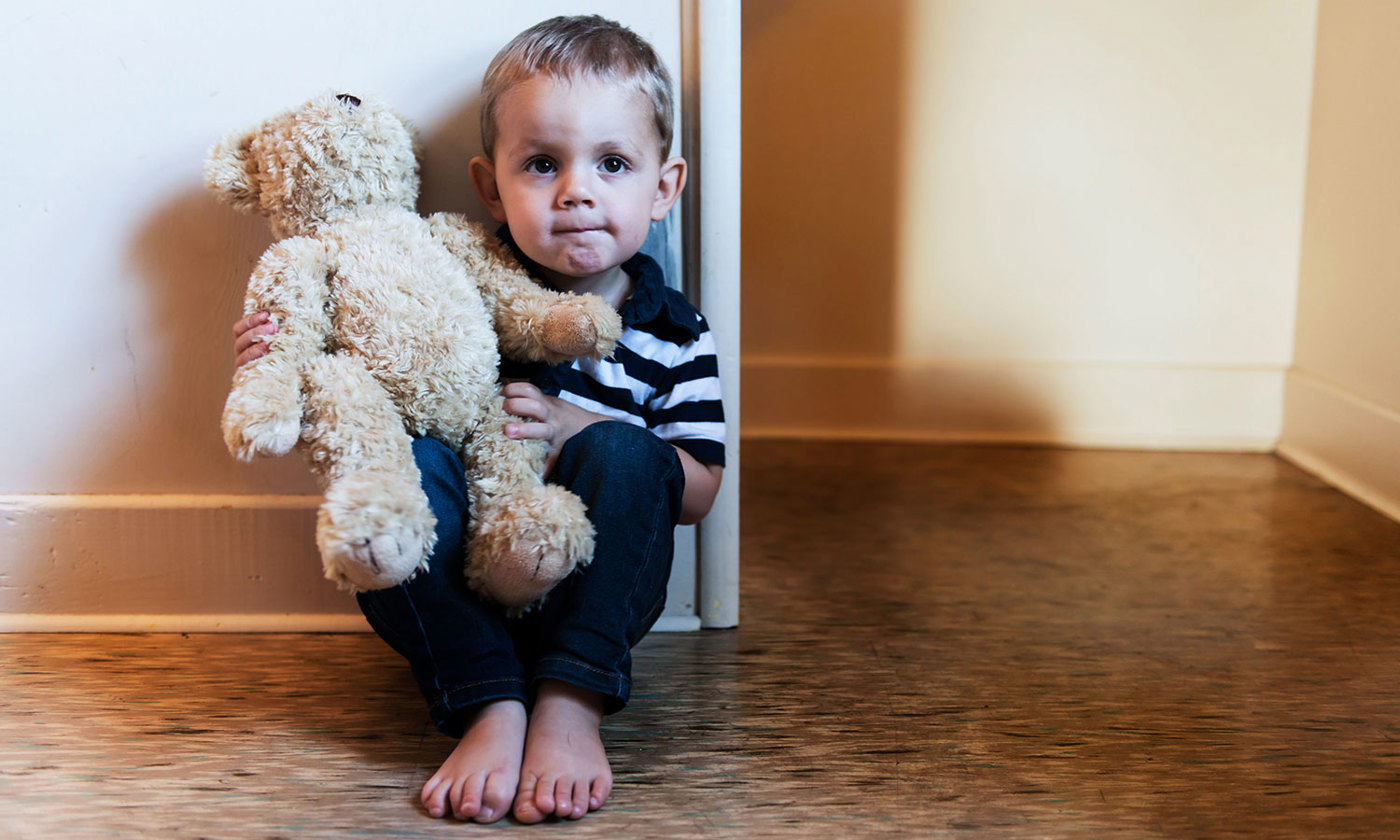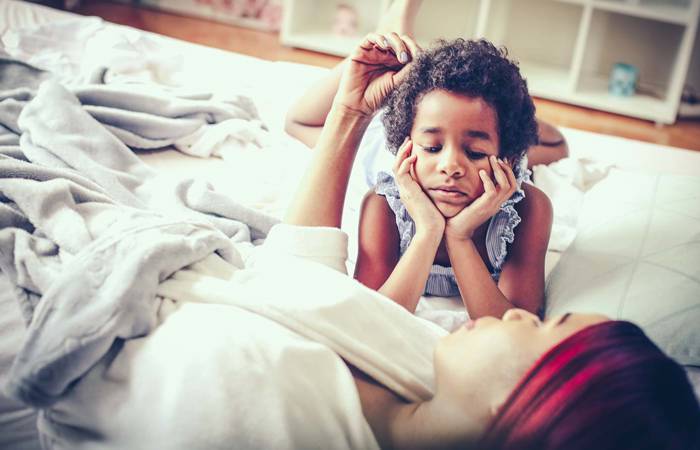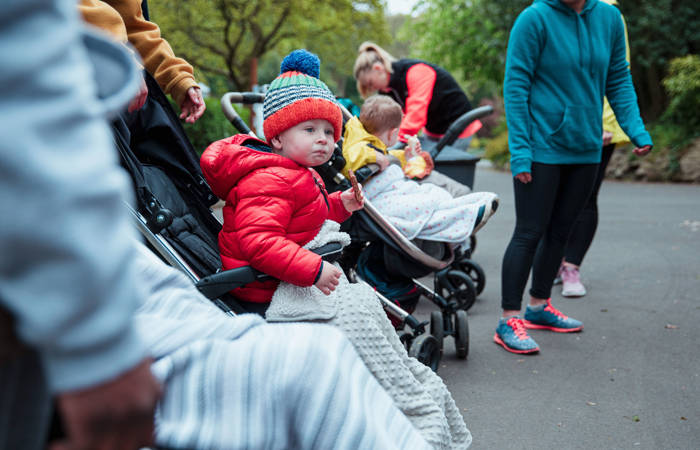Like what you see?
Sign up to receive more free parenting advice.
Thank you for subscribing to our newsletter!
Child Development

Credit: iStock.com/LSOphoto
It's estimated that around one in seven Australian children experience mental health issues and about half of all serious mental health issues in adulthood begin before the age of 14, according to mental health support organisation Beyond Blue.
So how can parents and carers support the under 5’s as they explore the world and learn to manage emotions? Some children may struggle and show challenging behaviours such as hyperactivity, anger, impulsiveness, fear, worry or withdrawal that need the warmth and support of a trusted adult or even a professional.
How parents can help
One of the best things you can do to support the children in your life is to learn how different issues present in children and know what to look for and when your child or family member might need some extra support.
Patrice O’Brien, Chief Community Officer at Beyond Blue says that, “the early years are all about exploring and learning how to emotionally respond to new experiences”.
“Some common emotional and behavioural difficulties include externalising behaviours (such as anger and restlessness), internalising behaviours (such as withdrawal and worrying), difficulty expressing their emotions, poor self-esteem, learning challenges and difficulties forming social relationships.”
Ms O'Brien says that if a parent is concerned about their child’s mental wellbeing, the best first step is discussing it with the family’s GP.
As for how parents can help, she explains that there are no absolute rights or wrongs, rather that every child and every situation is unique.
There is strong evidence that mental disorders in childhood and adolescence predict mental illness in adulthood.Australia’s Children - AIHW
Stay up to date with the latest news and articles from First Five Years
Thank you for subscribing to our newsletter!
Poor mental health in childhood impacts on later life
A 2020 report by the Australian Institute on Health and Welfare (AIHW) titled Australia’s Children, found that poor mental health directly impacts young people’s future ability to live fulfilling and productive lives.
“There is strong evidence that mental disorders in childhood and adolescence predict mental illness in adulthood,” the report states.
The report recommends children have loving, responsive and stable relationships with a caring adult to help build secure attachments, which is at the core for healthy social and emotional development.
It also concludes that, “childhood presents the greatest opportunity for intervention”.
Funded by the Australian Government, Be You launched in 2018 to provide an end-to-end approach to mental health and wellbeing across the educational stages, from early learning services to primary school to secondary school.
“Be You supports early learning services and schools to develop a positive, inclusive and resilient learning community where every child, young person, educator and family can achieve their best possible mental health,” says Ms O’Brien.
The initiative provides educators with knowledge, resources and strategies for helping children and young people understand mental health.
It highlights that early experiences shape children’s development and can have a lasting effect on their mental health and wellbeing.
While families are the first, and often most important influence on a child’s development, the initiative emphasises that educators play a very important role in supporting positive child development.
It is delivered by Beyond Blue, in collaboration with Early Childhood Australia and headspace.
“Parents can encourage their early learning service or school to register for free with Be You, so their child’s educators can receive the best possible information about supporting the mental health and wellbeing of the learning community,” says Ms O’Brien.
“While Be You was created for educators, information is available for parents and carers on Beyond Blue’s Healthy Families website,” she adds.
The state of our children’s mental health
“Most data, in terms of prevalence of mental health conditions, relates to children over the age of six, with the AIHW reporting no significant change between 1998 and 2013-14 for those aged between six and 17 years,” explains Ms O’Brien.
In Australia’s Children, AIHW found that in 2013-14, an estimated 314,000 children aged four to 11 years old experience a mental disorder, with boys more commonly affected than girls.
Attention deficit hyperactivity disorder was the most common disorder for children at 8.2 per cent, and more common in boys.
Anxiety disorders were the second most common at 6.9 per cent, but most common among girls.
Worryingly, children aged four to 11 years old who had a major depressive order missed out on 14 days of the school year due to their symptoms.
This was more than twice as high than children with anxiety disorders, who missed out on six.
Finally, students with mental disorders were more likely to have lower NAPLAN test scores.
Strategies parents may find useful to raise mentally healthy children
Patrice O’Brien, Chief Community Officer at Beyond Blue
- Spending quality time with your child might seem obvious, but it can be highly beneficial for their wellbeing. Talk with them about what you are doing, ask what they are thinking or how they are feeling and make time to play together.
- Encourage your child to learn skills to do with sharing and caring for others. An example of this could be helping to pack away the toys.
- Praise your child’s efforts when they are being friendly or considerate of others.
- Help your child understand emotions by talking to them about the types of body language and facial expressions people use and what they might mean about how they feel.
- You can encourage your child to express how they are feeling by helping them to use phrases to say what they need and feel, such as "I would like a turn with that" or "I’m frustrated I can’t have a biscuit".






